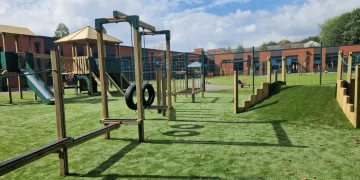7 Steps to Encourage Honesty in our Kids and Put an End to Lying

Your budding artist may suddenly abandon the crayon mural on the hall.
Your daughter may tell you that she has already washed her hands despite having mud on them.
Your teen may tell you that he was home at curfew last night when you heard him arrive a half hour late.
It’s frustrating for parents to see their children lie. When we know why children lie, we can teach them to be more honest.
Lies aren’t always a result of ulterior motives. According to Kang Lee’s research, when your preschooler begins lying, it is simply a developmental milestone.
This change in behavior is a sign that your child has changed the way they organize information. This is a normal development, so don’t worry that your child will become a pathological liar.
Study shows that kids lie from the age of 4 up to 17 years old. By age 7, they can lie so well that their parents may not even be able to tell.
After the age of 17, the likelihood of our children lying drops.
Kids will often lie to avoid punishment or disappointing their parents.
Would it make you honest to know that you would be humiliated, given a lecture or punishment, or yelled at?
When they know that’s what will happen, it can be hard for them to tell the truth. You don’t want your child to disappoint you, either.
They may lie about a bad choice they made or invent ridiculous stories to impress you.
We want to punish our children when they lie to us.
When we punish children for lying, they will likely continue to lie in order to avoid any punishment.
If we can’t punish the liars, what are we to do?
We can create an environment that encourages kids to tell the truth by keeping in mind their reasons for lying. Seven tips will help make your home more honest.
1. Stay calm and carry on parenting.
You can learn how to respond to mistakes and misbehavior in your own home.
When your children are afraid of being punished or yelled at for making a mistake, they will not want to tell you the truth.
It’s important to use a calm, confident voice. Yes, it isn’t easy, but possible. This doesn’t excuse kids from lying. Instead of being angry or blaming your child, talk about solutions.
2. Do not tell a false story.
Do not ask your daughter if her room is clean if you see a pile of dirty laundry on her floor.
We give our children an opportunity to lie when we ask them questions for which we know the answer. Focus on ways to resolve the problem. Ask Evan what he plans to do about his homework if you know he hasn’t finished it.
Instead of asking, “Where did this mud come from? “What are we going to do to make sure this doesn’t happen again?”
It can prevent a power battle and allow your child to keep their dignity by focusing on the plan of action rather than making up an excuse.
This also teaches them what to do the next time, such as sitting down and doing homework straight after school or removing their shoes from the living room instead of in the mudroom.
3. The whole truth.
We may want to punish our children for lying, but blaming or accusing them only makes things worse.
Understanding the reasons why your child couldn’t tell you the truth will encourage her to do so in the future.
Start a conversation by saying, “That sounds to me like a tale.” You’re probably worried about something, and you are afraid to tell the truth. Let’s discuss it. What would you do to be more honest ?”?
Use the information to encourage her to be more honest in the future.
4. Celebrate honesty.
If you are upset because there is a pool of water in the bathroom sink after your daughter washed her dolls, praise her for telling you the truth.
You can tell her: “I appreciate that you told me the truth.” It must have been hard for you to tell the truth, but I appreciate that you did.
5. Delight in do-overs.
Consider mistakes as an opportunity to learn to make better decisions. If we remain calm and don’t yell or punish our children for their mistakes, they will be more willing to confess in the future.
Make the mistake a learning experience.
Ask, “If you had a second chance, what would be different?” and brainstorm new ideas. Ask what the person can do to make things right.
6. Show your love
Even when your children make mistakes, let them know that you love and accept them.
You will still love them no matter what they do. It will make them feel more comfortable talking to you.
7. Walking the Talk
Keep in mind that your children are constantly watching you and learning your actions.
These little white lies, whether they are to avoid dog-sitting for neighbors or to help with a school fundraiser, don’t come off as harmless. They teach your children that lying is okay.
Final Thoughts
These tips can help you and your family start on the path towards a more honest home. Remember that it takes time to develop trust. Be patient.
If your child lies often or lies to hurt others, then you might want to seek professional help.













